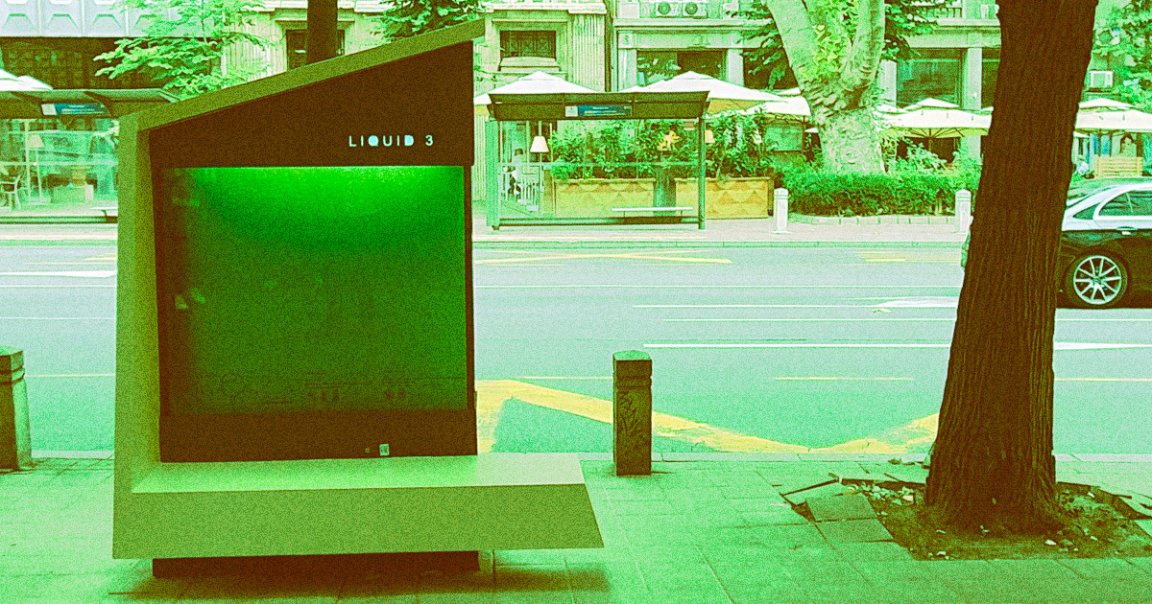
Boxed In Bioreactor
Cities across the world are losing their trees. But planting more of them? That’s too old school.
Behold the high-tech, decidedly nondendroid successor that people are only now discovering in a furor of outrage: so-called “liquid trees.” Though first unveiled by University of Belgrade researchers in their host city in 2021, these ostensible tree replacements have recently become the subject of near-universal riducule after several Twitter accounts spotlighted them last week.
Its appearance certainly isn’t doing it any favors — not quite the utopian, wholesome looking solarpunk contraption that would more effectively endear itself, and more a corporate-minimalist, rectangular receptacle reminiscent of the liquid embodiment of Satan in John Carpenter’s 1987 “Prince of Darkness.”
But rather than an extraterrestrial entity hellbent on ravaging humanity, that radioactive-looking green goop is actually about 160 gallons of liquid containing microalgae, which in totality are supposed to fulfill the same conversion of CO2 to oxygen that trees do through photosynthesis.
Who Asked For This
From the outset, it’s undoubtedly a preposterous-looking project — why reinvent the wheel? — seemingly emblematic of bad faith tech industry attempts of solving systemic societal problems in the dumbest way possible.
Naturally, this primed the liquid trees for some easy dunks online.
“Why would you want a tree (home to birds and squirrels, rustles in the breeze, changes colors with the seasons, a subtle reminder that life ebbs and flows and grows and was here before us and will outlast us all) when you could have A Bus Stop Filled With Goo,” tweeted Rodger Sherman, a staff writer at The Ringer.
The prevailing sentiment overall: just plant more trees.
Olive Branch
But if we’re being fair, there’s still a decent case to be made in defense of the liquid trees, as hokey as they seem.
According to the researchers, the microalgae are between 10 to 50 times more efficient than trees, technically offering more bang for your buck.
“The microalgae replaces two, 10-year-old trees or [240 square yards] of lawn,” Ivan Spasojevic, a researcher on the project, said in a statement.
Spasojevic said the goal was “not to replace forests but to use this system to fill those urban pockets where there is no space for planting trees,” like in between two living trees, for example.
So in reality, it’s more an “algae air purifier” meant to supplement trees, as first described in the researcher’s original statement. And we suspect that descriptor would not have incurred anywhere near the amount of outrage that “liquid trees” does. Oh well. Any publicity is good publicity, right?
The researchers hope that their creation will help combat air pollution in Belgrade, where the country at large has some of the worst air quality in Europe. Admirable, but we generally still agree with the maxim of simply planting more trees.
More on trees: Carbon Dioxide Seems to Be Making Trees Grow Faster, Scientists Say